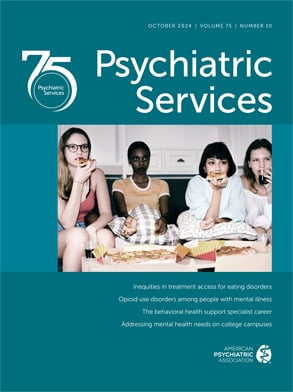Troubled Journey is the best book I have seen among those intended for persons who have a sibling or a parent with major mental illness. The authors know their subject matter well. Dr. Diane Marsh specializes in working with people who have serious mental illnesses and with their families, and she has written previous books about families dealing with serious brain disorders. Rex Dickens knows, from personal experience, what it is like to have a parent and siblings with such illnesses. He developed one of the first self-help support groups for siblings and adult offspring, and he served on the board of the former Siblings and Adult Children Network of the National Alliance for the Mentally Ill (NAMI).
The book makes extensive use of quotations from family members whose siblings or parents have a major mental illness. These quotes, which add greatly to the book's effectiveness, come from a national survey conducted by the authors; from the book Anguished Voices, edited by them, which consists of personal accounts by family members; and from material transcribed from interviews, a panel presentation, and a support group
The survey, which asked adult siblings and offspring about their concerns, revealed that 94 percent are concerned about care for their ill relative; 75 percent have had feelings of helplessness and hopelessness; and 66 percent have experienced depression. Many have difficulty forming intimate relationships. The list of difficulties is long.
However, 86 percent of the survey participants found some positive results of their experience with mental illness. They reported increased tolerance, empathy, and compassion. Their skills for coping with challenges were enhanced. They had a clearer sense of what is important and a greater appreciation of their own mental health.
All people faced with mental illness in the family have compelling needs for accurate information. They also need skills for communication, problem solving, and stress management. The authors suggest that family members with an ill relative can obtain information, support, and opportunities for advocacy by joining NAMI. As an active member of a NAMI affiliate, I think that taking a family-to-family education class is a good way to address all of these needs. The class is a 12-session course taught by experienced and trained family members. On completion of this class, participants are urged to join a NAMI support group.
Family members are advised in the book to draft a "personal action plan," which should include maintaining a normal lifestyle and remembering that caregiving is only one of their roles. The plan should enhance the family member's ability to love, work, and play. It should acknowledge that grieving is a necessary, normal process. A family member who remains consumed by the fact of mental illness in the family should seek professional counseling.
In this section…
As part of this special issue of Psychiatric Services on women and chronic mental illness, several books about mentally ill parents are reviewed here, including three books written by daughters of mentally ill mothers. In the lead review, Jean Bouricius comments on a book about coming to terms with the mental illness of a parent or sibling. Other reviewers discuss books on postpartum depression, on community services for mentally ill women, and on the negative consequences of using "battered woman syndrome" in the legal system.
Further advice to the family member is to separate the family and the ill relative from the illness, "never losing sight of the human being behind the symptoms." Part of this process should include talking to the ill relative about his or her experiences, symptoms, coping strategies, and hopes for the future. (However, I suspect it could be very upsetting to the ill relative to be asked what it is like "to have difficulty thinking logically and rationally," as the authors suggest.)
Troubled Journey should be helpful to providers and to anyone who has a mentally ill relative.

